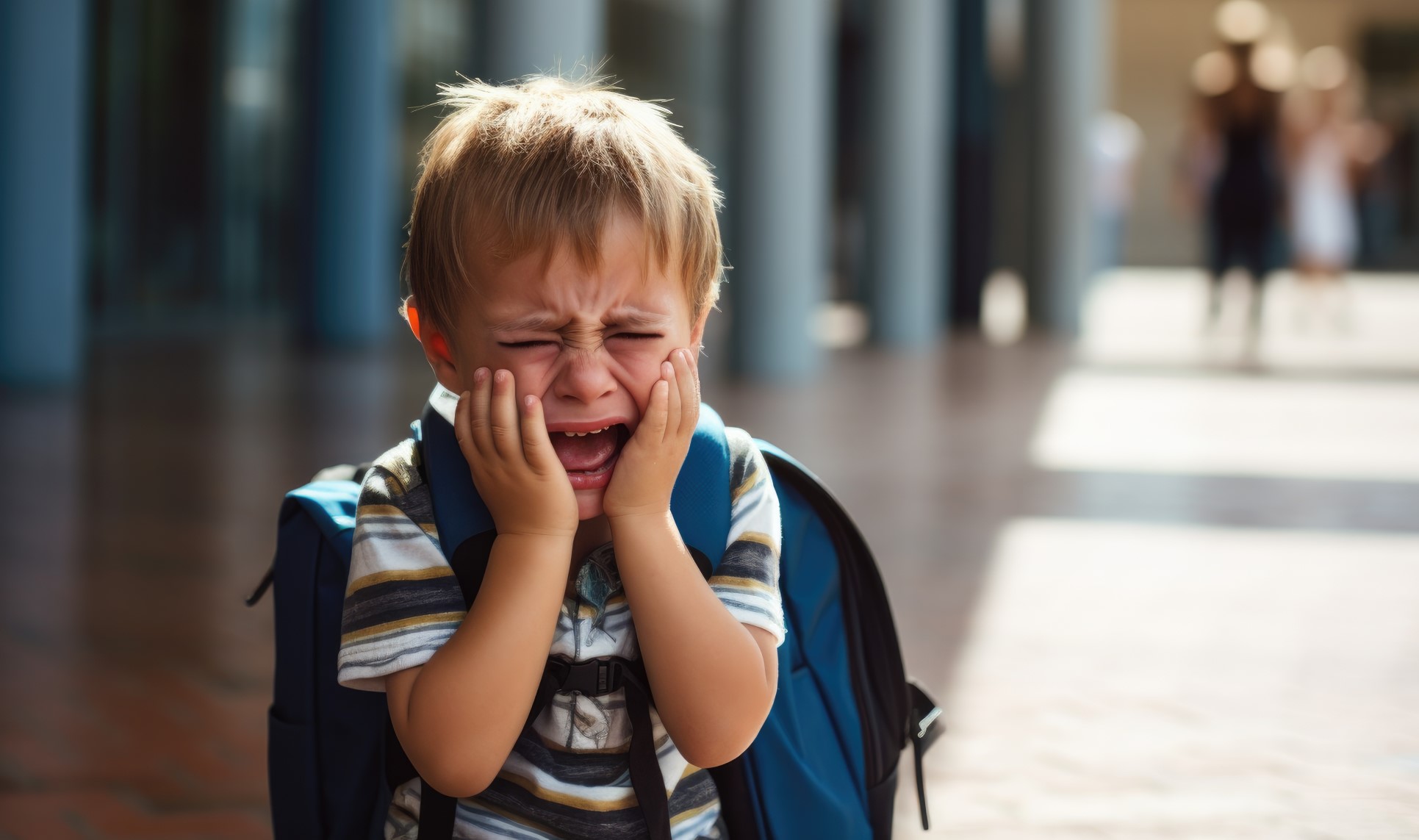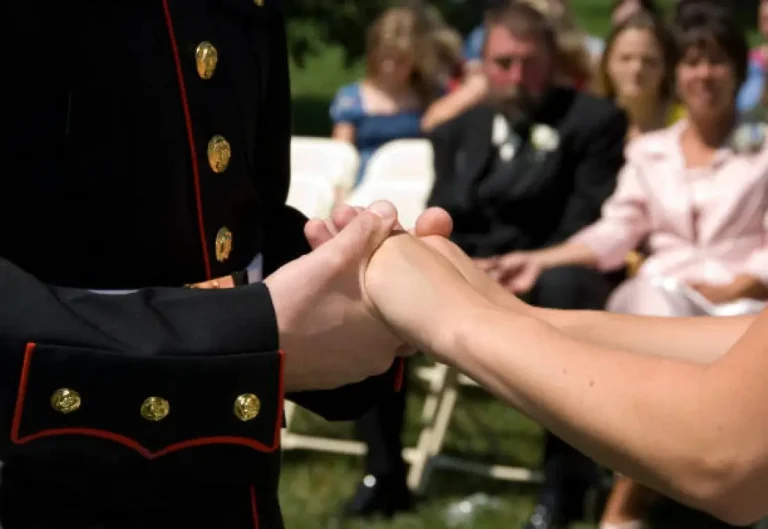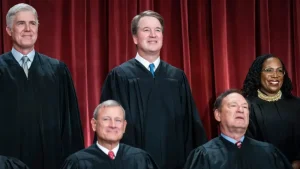The fluorescent lights in the family court waiting room buzzed with the kind of persistent hum that gets under your skin after a while, mixing with the whispered conversations of lawyers and the occasional sob from someone who had just received devastating news. I sat on the hard plastic chair, my hands clenched so tightly in my lap that my knuckles had gone white, watching the clock on the wall tick away the minutes until what could be the most important hour of my life.
At fourteen, I was supposed to be worried about algebra tests and whether Jessica Martinez would notice me at the school dance. Instead, I was sitting in a courthouse, wearing my only dress shirt—the one Mrs. Rachel had helped me iron that morning—preparing to convince a judge that I was capable of raising my six-year-old brother, Samuel.
The weight of that responsibility should have terrified me. Maybe it did, somewhere deep down, but all I could think about was the promise I had made to Samuel three months ago, on the day they took him away. He had been crying, clutching his worn teddy bear—the one with the missing eye that he’d had since he was two—and looking at me with those big brown eyes that trusted me to fix everything the way I always had.
“This isn’t forever,” I had whispered to him as the social worker gently but firmly guided him toward her car. “I’m going to bring you home, Sammy. I promise.”
Now, sitting in that courthouse, those words felt like they might have been the biggest lie I’d ever told.
The story of how we ended up here began long before that terrible day in February. Our mother, Elena Rodriguez, had been struggling with addiction for most of Samuel’s life, though I hadn’t fully understood what that meant when I was younger. I just knew that some days Mom would be the most wonderful person in the world—making us pancakes shaped like dinosaurs, teaching us card tricks, dancing with us in the living room to old salsa music—and other days, she would disappear into her bedroom for hours, emerging only occasionally to mumble something about being tired or sick.
I learned to take care of Samuel when I was nine and he was barely walking. I learned to make cereal and peanut butter sandwiches, to change diapers, to read the same bedtime story over and over until he fell asleep. I learned to lie to teachers when they asked why I was always tired, and to neighbors when they wondered why a little boy was crying alone on the front steps while his mother was passed out inside.
The morning everything changed started like any other difficult day. I had gotten Samuel ready for school—brushing his teeth, making sure he had his backpack, double-checking that he had eaten something resembling breakfast. Mom had been in one of her bad periods for three days, barely emerging from her room, and I could see the confusion and hurt in Samuel’s eyes every time he asked where she was.
“Why won’t Mama come say goodbye?” he had asked that morning, his small hand in mine as we walked to the bus stop.
“She’s just really tired today, buddy,” I had said, the familiar knot of worry tightening in my stomach. “But I’ll be here when you get home from school, okay? We’ll make spaghetti, your favorite.”
I should have known something was seriously wrong when I came home that afternoon to find the front door wide open and Samuel’s backpack abandoned on the porch. I should have called for help immediately instead of running into the house calling their names. But at twelve years old, my first instinct was still to try to handle everything myself, to protect Samuel from whatever new crisis had emerged.
I found them in the kitchen. Samuel was sitting on the floor next to our mother, who was unconscious and barely breathing. He was patting her face gently, the way I had taught him to wake her up on the mornings when she had trouble getting out of bed.
“Brad,” he said when he saw me, his voice small and scared. “Mama won’t wake up. I tried the pat-pat like you showed me, but she won’t wake up.”
That was the day the paramedics came, followed by the police, followed by the social workers who would change our lives forever. Mom survived that overdose, but it was the beginning of a legal process that would ultimately tear our small family apart.
The months that followed were a blur of court dates, supervised visits, and temporary placements. Samuel and I were initially placed together with a family across town—the Hendersons—who were kind but clearly overwhelmed by suddenly having two traumatized children in their home. We stayed there for six weeks before space constraints forced the system to separate us.
That separation was when I truly understood what it meant to have your heart broken. Samuel cried every night for two weeks, calling for me in his sleep, and I could only hold him during our twice-weekly supervised visits, promising him over and over that I would find a way to bring us back together.
The foster homes that followed varied wildly in quality and care. Some families were genuinely loving people who did their best to provide stability and comfort. Others seemed more interested in the monthly stipend than in the wellbeing of the children in their care. I learned to adapt quickly, to be grateful for kindness when it was offered, and to protect myself emotionally when it wasn’t.
But Samuel, at six years old, didn’t have those same coping mechanisms. He was confused, scared, and desperately homesick for a life that had never been particularly stable but had at least been ours. During our visits, he would ask me the same questions: “When can I come home with you, Brad? Why can’t we live together? When will Mama be better?”
I developed a repertoire of answers that were hopeful without being promises I couldn’t keep. “Soon, buddy. The grown-ups are working on it. Mama is getting help so she can take better care of us.” But as the months stretched into a year, and then into two years, those answers felt increasingly hollow.
Everything changed the week before my fourteenth birthday, when I received news that would reshape my understanding of what family meant and what I was capable of achieving. Our mother had been in and out of treatment programs multiple times, and each relapse had made it less likely that Samuel and I would be returned to her care. Finally, her parental rights were terminated, making us officially available for adoption.
That should have been devastating news, and part of me did grieve for the mother I had always hoped she could become. But mostly, what I felt was a strange sense of relief and determination. If our mother couldn’t take care of us, then I would find a way to take care of Samuel myself.
The idea of pursuing custody of my younger brother was initially met with skepticism, and sometimes outright dismissal, by almost every adult in the system. I was a minor, living in foster care myself, with no job, no permanent address, and no legal standing. The very suggestion that I could provide adequate care for a six-year-old seemed laughable to most people.
But I had one significant advantage that many people underestimated: I had been Samuel’s primary caregiver for most of his life, even when we were living with our mother. I knew his habits, his fears, his favorite foods, the specific way he liked his blanket folded when he went to sleep. I knew that he still sucked his thumb when he was scared, that he was allergic to strawberries, that he could recite every dinosaur name in his picture book but still needed help tying his shoes.
More importantly, I loved him with the fierce, protective intensity that only comes from having raised someone from infancy. He wasn’t just my brother; he was my responsibility, my purpose, and in many ways, my reason for continuing to fight through every difficult day.
The legal process of pursuing kinship care—the formal term for what I was attempting—required me to prove that I could provide Samuel with a stable home environment, adequate supervision, and all the necessities of life. At fourteen, with no high school diploma, no job experience, and no savings, this seemed like an impossible task.
But I had learned something important during my years in the foster care system: impossible and difficult are not the same thing. Difficult just means you have to work harder, plan better, and refuse to give up when other people tell you it can’t be done.
I started by getting my first real job at a local grocery store, stocking shelves and bagging groceries after school and on weekends. The manager, Mr. Peterson, was initially reluctant to hire someone so young, but I convinced him to give me a chance by showing up every day for a week, asking if he had changed his mind and offering to work for free just to prove my reliability.
The money I earned—$8.50 an hour, twenty hours a week when school was in session, full-time during breaks—wasn’t much, but I saved every penny I could. I opened a savings account and deposited my paychecks religiously, watching the balance grow slowly but steadily. I bought a composition notebook and began tracking every expense, every goal, every requirement the court had outlined for gaining custody.
Simultaneously, I enrolled in night classes to complete my GED, studying after work by the light of a small desk lamp in whatever foster home I was currently placed. The other teenagers in my various placements thought I was crazy, spending my Friday nights with algebra textbooks instead of trying to sneak out or talk to girls on the phone. But every practice test I passed, every credit I earned, felt like another step closer to bringing Samuel home.
The living situation requirement was the most challenging obstacle. The court required that I have stable housing with a separate bedroom for Samuel—not just space for a sleeping bag or a shared room, but his own private space that met specific safety and size requirements. On a grocery store salary, even a one-bedroom apartment in our area was barely within reach, let alone a two-bedroom place.
I spent months scouring rental listings, calculating and recalculating my budget, and slowly coming to the realization that I simply couldn’t afford what the court required. It was during this particularly discouraging period that Mrs. Rachel Santos entered my life and changed everything.
Mrs. Rachel owned a small duplex in a quiet neighborhood about fifteen minutes from downtown. I had been placed with her nephew and his family temporarily, and she had noticed me spending long hours at the kitchen table, working on homework and studying rental listings with the intensity of someone whose life depended on it.
“What are you working on so hard every night, mijo?” she asked one evening, setting a cup of hot chocolate next to my elbow without being asked.
I told her about Samuel, about my goal of gaining custody, about the housing requirement that seemed impossible to meet. I expected the same mixture of sympathy and skepticism I had received from most adults, but instead, Mrs. Rachel listened thoughtfully and asked practical questions about my income, my timeline, and my long-term plans.
A week later, she made me an offer that seemed too good to be true: she had a small apartment above her garage that she had been planning to renovate and rent out. If I was willing to help with the renovation work—painting, cleaning, basic repairs—she would rent it to me for significantly below market rate, with the understanding that Samuel would eventually be living there too.
“But why would you do this?” I asked, suspicious after years of learning that adults rarely offered help without expecting something significant in return.
Mrs. Rachel smiled and patted my shoulder. “Because everyone deserves a family, and because I think you’re going to be a good man someday. Samuel is lucky to have a brother who fights for him the way you do.”
The apartment was small—just two bedrooms, a tiny kitchen, and a bathroom—but it was clean, safe, and most importantly, it met all the court’s requirements for Samuel’s placement. I spent every free hour over the next month helping Mrs. Rachel fix it up, learning skills I had never needed before: how to patch holes in drywall, how to paint trim without getting streaks, how to install child safety latches on cabinets.
I bought Samuel’s bedroom furniture piece by piece from thrift stores and garage sales, sanding and repainting a small dresser until it looked almost new, finding sheets with dinosaur patterns that I knew would make him smile. I hung glow-in-the-dark stars on the ceiling in the same pattern we had created in our old bedroom when we lived with our mother, and I placed his teddy bear carefully on the pillow, exactly where it would be waiting when he finally came home.
The legal process moved with frustrating slowness, requiring home inspections, background checks, character references, and countless meetings with social workers who needed to be convinced that a fourteen-year-old could adequately parent a six-year-old. Each appointment felt like a test I might fail, each form like another hurdle designed to prove I wasn’t qualified for what I was trying to do.
Francis Martinez, the social worker assigned to Samuel’s case, became a reluctant ally in this process. Initially skeptical of my plan, she gradually came to understand the depth of my commitment and the strength of my relationship with Samuel. She helped me navigate the bureaucratic requirements, provided references for parenting classes, and advocated for my case with the court when other professionals expressed doubts.
“You’re doing everything right, Brad,” she told me during one particularly frustrating meeting where another requirement had been added to my growing list. “But the system isn’t designed for situations like yours. You’re asking them to trust a minor with a responsibility that many adults struggle with.”
“I know,” I replied, trying to keep the frustration out of my voice. “But I’ve been taking care of him his whole life. I’m not asking for the chance to learn how to be his guardian—I’m asking for legal recognition of what I’ve already been doing for years.”
The supervised visits with Samuel during this period were both the highlight of my week and a source of constant heartbreak. Every Tuesday and Thursday, for two hours, we would sit in a sterile room at the social services building, playing board games, reading books, and trying to maintain some semblance of the close relationship we had always shared.
Samuel, now seven years old, had adapted to the foster care system with the resilience that children often display, but I could see the toll it was taking on him. He was quieter than he used to be, more hesitant to trust new people, and increasingly anxious about when he would be able to come home. His current foster family, the Baileys, were kind and caring, but he still asked me the same question at the end of every visit: “When can I come live with you, Brad?”
“Soon, buddy,” I would tell him, hoping it wasn’t a lie. “I’m working really hard to make that happen.”
The months leading up to the final custody hearing were a blur of preparation and anxiety. I completed my GED with a score high enough to qualify for community college classes, maintained steady employment with two small raises that demonstrated my reliability, and participated in every parenting class and family counseling session the court required.
I learned about child development, nutrition, homework help strategies, and how to recognize signs of emotional distress in children who had experienced trauma. Much of the information was things I had already learned through experience, but the formal education gave me vocabulary and confidence to articulate why I believed I could provide Samuel with everything he needed.
The night before the hearing, I sat in Samuel’s carefully prepared bedroom, looking at the dinosaur sheets I had washed and folded so many times in preparation for his arrival, and tried to prepare myself for the possibility that despite everything I had done, the answer might still be no. The statistical odds were against me—most kinship care placements went to adult relatives, not teenage siblings. The judge would be taking an enormous risk by placing a young child with someone who was barely out of childhood himself.
But I also knew something that couldn’t be quantified in statistics or captured in court documents: Samuel and I belonged together. We had survived our mother’s addiction, multiple foster placements, and two years of forced separation because we had each other to fight for. That bond, forged in shared experience and unconditional love, was worth more than any housing requirement or financial stability measurement.
The courthouse waiting room that morning was filled with the usual collection of nervous families, tired lawyers, and overworked social workers juggling multiple cases. I sat with Mrs. Rachel, who had insisted on coming for moral support, wearing my best clothes and carrying a folder with every document, reference letter, and piece of evidence I had gathered over the past year.
Francis Martinez arrived with Samuel and his current foster parents, the Baileys. Seeing him in his little suit—the one Mrs. Bailey had bought specifically for this hearing—made my throat tighten with emotion. He looked so small and serious, clearly understanding that something important was happening but not entirely sure what it meant for his future.
When our eyes met across the room, his face lit up with the same smile that had gotten me through every difficult day of the past two years. He couldn’t run to me—court protocols required supervised interaction even here—but he waved enthusiastically and mouthed “Hi, Brad!” in a way that made me believe, for just a moment, that everything was going to work out exactly as it should.
“Rodriguez custody case,” the bailiff called, and suddenly it was time.
The courtroom was smaller than I had expected, with fluorescent lighting that cast harsh shadows and wooden benches that creaked every time someone shifted position. Judge Patricia Hernandez, a middle-aged woman with graying hair and sharp eyes, reviewed the thick file containing our entire family history while various professionals took their seats.
The hearing itself was a mixture of testimony, document review, and questioning that felt simultaneously rushed and endless. Francis Martinez spoke about my dedication and progress over the past year. Mrs. Rachel testified about my character and the stable housing I had secured. Mr. Peterson from the grocery store described my work ethic and reliability. Even Mrs. Bailey, Samuel’s current foster mother, provided a statement supporting my petition, noting the obvious bond between Samuel and me and her belief that we belonged together.
But I could tell from Judge Hernandez’s questions and comments that she remained skeptical. At fourteen, I was asking her to take an unprecedented risk, to place a vulnerable child with someone who had no adult supervision, no family support system, and no experience with the legal responsibilities of guardianship.
“Mr. Rodriguez,” she said, looking at me directly for the first time during the proceedings, “you’ve demonstrated admirable dedication to your brother, and everyone who has testified today speaks highly of your character. But raising a child is about more than love and good intentions. It requires maturity, financial stability, and the ability to make complex decisions about education, healthcare, and discipline. How can you assure this court that you’re prepared for those responsibilities?”
I had prepared for this question for months, but sitting in that courtroom, with Samuel’s future hanging in the balance, all my practiced answers seemed inadequate. Instead, I found myself speaking from the heart about what Samuel meant to me and why I believed we could build a good life together.
“Your Honor,” I began, surprised by how steady my voice sounded, “I’ve been Samuel’s primary caregiver for most of his life, even when we were living with our mother. I’ve already made decisions about his healthcare, his education, and his daily care, and I’ve done it successfully. The only thing that’s different now is that I’m asking for legal recognition of what I’ve already been doing.
“I know I’m young, and I know there are things I’ll need to learn as we go. But Samuel and I have been a team for seven years, and we’ve survived things that would have broken many families apart. I’ve worked three jobs to save money for our apartment. I’ve completed my GED while working full-time. I’ve taken parenting classes and learned everything the court has asked me to learn.
“But most importantly, I love Samuel more than my own life, and he knows that. He trusts me to take care of him because I’ve never let him down before, and I’m not going to start now. We belong together, Your Honor. We’ve always belonged together.”
The silence that followed my statement seemed to stretch forever. Judge Hernandez looked at her notes, then at Samuel, who was sitting quietly in the back row with his foster parents, then back at me. I could hear my own heartbeat and the quiet hum of the air conditioning, but nothing else.
Finally, she spoke: “This court recognizes that Mr. Rodriguez has demonstrated exceptional maturity and dedication throughout this process. The evidence shows that he has met every requirement we have established, often exceeding expectations for someone of his age. While this is certainly an unusual situation, the bond between these siblings is undeniable, and Mr. Rodriguez has proven his ability to provide stable, loving care.
“Therefore, this court awards kinship guardianship of Samuel Rodriguez to his brother, Bradford Rodriguez, with the understanding that this arrangement will be subject to regular review and continued oversight by social services. Congratulations to both of you.”
The moment those words left her mouth, the entire courtroom seemed to explode with sound and motion. Mrs. Rachel started crying, Francis Martinez was smiling and shaking her head in amazement, and Samuel—my beautiful, patient little brother—jumped up from his seat and ran to me with arms outstretched.
“Brad!” he shouted, launching himself into my arms with the full force of his seven-year-old body. “Does this mean I get to come home with you now?”
“Yes, buddy,” I said, holding him tighter than I probably should have in a courtroom full of people, tears streaming down my face without any attempt to hide them. “This means you get to come home. Forever this time.”
The practical details of the transition took several more hours—paperwork to sign, custody arrangements to finalize, belongings to collect from the Baileys’ house—but none of that seemed real. What felt real was Samuel’s hand in mine as we walked out of the courthouse together, the weight of his backpack on my shoulder, and the knowledge that we were finally going home to the apartment I had prepared for exactly this moment.
“Can we get pizza to celebrate?” Samuel asked as we buckled our seatbelts in Mrs. Rachel’s car.
“We can get whatever you want,” I told him, laughing at the normalcy of the request after such a monumental day. “Pizza, ice cream, dinosaur chicken nuggets—whatever you want.”
“I want pizza and ice cream and to see my room and to never have to leave you again,” he said seriously.
“Done,” I replied. “All of those things are definitely happening.”
As we drove toward home—our home, finally—I found myself thinking about the promise I had made to Samuel on the day they took him away. “This isn’t forever,” I had told him, and despite months of uncertainty and setbacks, that promise had turned out to be true.
But more than that, I realized I had learned something important about what family really means. It’s not just about sharing DNA or having the same last name. It’s about showing up for each other, day after day, even when it’s difficult. It’s about making sacrifices and taking risks because someone else’s wellbeing matters more than your own comfort. It’s about keeping promises, even when you’re not sure you’ll be able to.
Samuel and I had been through more challenges in our young lives than many people face in decades, but those experiences had also taught us that we could rely on each other completely. We were a team, a unit, a family in the truest sense of the word.
That first night in our apartment, after Samuel had explored his new room at least a dozen times, after we had eaten pizza while sitting on the floor of our empty living room, after I had read him three bedtime stories and tucked him in with his worn teddy bear, I sat on the edge of his bed and watched him fall asleep in his own space for the first time in over two years.
“Brad?” he said sleepily, his thumb creeping toward his mouth in the old habit that appeared whenever he was particularly content.
“Yeah, buddy?”
“I’m really glad I’m home.”
“Me too, Samuel. Me too.”
The years that followed weren’t always easy. Raising a child while finishing high school, working, and eventually starting college required a level of organization and maturity that I had to develop quickly. There were nights when Samuel had nightmares about the time we spent apart, mornings when I felt overwhelmed by the responsibility of making every decision for both of us, and moments when I wondered if I was doing enough to give him the childhood he deserved.
But there were also school plays where I cheered louder than any other parent, birthday parties that we planned together for weeks, quiet Sunday mornings when we would make pancakes and read the comics section of the newspaper, and the gradual realization that we had created something beautiful and lasting together.
Samuel grew into a confident, intelligent young man who excelled in school and made friends easily. He played little league baseball and took piano lessons, participated in science fairs and school plays, and generally lived the kind of normal, stable childhood that had seemed impossible during our early years.
More importantly, he never lost the special bond we had forged during our most difficult times. Even as he developed his own interests and friendships, he continued to see me not just as his guardian but as his partner in building our life together.
Now, years later, when people ask me about those early days—about what it was like to gain custody of my brother at fourteen, about how we managed to create a stable home despite all the odds stacked against us—I always return to the same truth: love is the most powerful force in the world, but love alone isn’t enough. You also need determination, sacrifice, and an absolute refusal to give up on the people who matter most.
Samuel and I were lucky to find adults like Mrs. Rachel, Francis Martinez, and Mrs. Bailey who believed in us and supported our goal of staying together. We were lucky that I was old enough and mature enough to take on adult responsibilities while still young enough to relate to Samuel as both a parental figure and a big brother.
But most of all, we were lucky to have each other, and to understand from a very young age that family is something you choose to build and maintain every day, through good times and bad, through setbacks and celebrations, through all the ordinary moments that make up a life.
The day they took Samuel away, I made him a promise that this wasn’t forever. Keeping that promise required everything I had—every ounce of determination, every dollar I earned, every bit of faith I could muster. But it was worth it, because at the end of the day, we came home together, and we never had to be apart again.
That, I learned, is what real magic looks like: not card tricks or illusions, but the simple, extraordinary fact that love can overcome almost any obstacle when it’s backed up by unwavering commitment and the refusal to accept defeat.

Emily Johnson is a critically acclaimed essayist and novelist known for her thought-provoking works centered on feminism, women’s rights, and modern relationships. Born and raised in Portland, Oregon, Emily grew up with a deep love of books, often spending her afternoons at her local library. She went on to study literature and gender studies at UCLA, where she became deeply involved in activism and began publishing essays in campus journals. Her debut essay collection, Voices Unbound, struck a chord with readers nationwide for its fearless exploration of gender dynamics, identity, and the challenges faced by women in contemporary society. Emily later transitioned into fiction, writing novels that balance compelling storytelling with social commentary. Her protagonists are often strong, multidimensional women navigating love, ambition, and the struggles of everyday life, making her a favorite among readers who crave authentic, relatable narratives. Critics praise her ability to merge personal intimacy with universal themes. Off the page, Emily is an advocate for women in publishing, leading workshops that encourage young female writers to embrace their voices. She lives in Seattle with her partner and two rescue cats, where she continues to write, teach, and inspire a new generation of storytellers.









